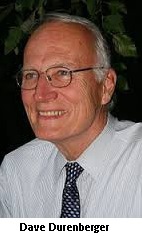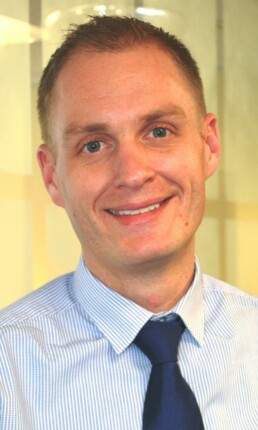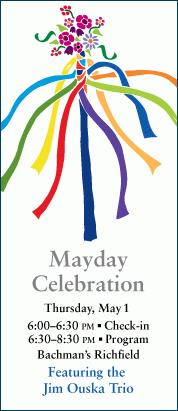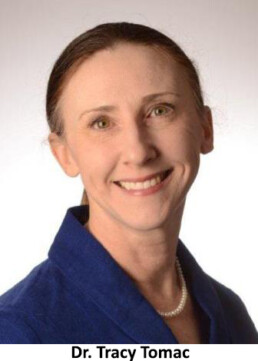New Ecumen White Paper Offers 5 Key Steps to Reducing Antipsychotics in Dementia Care
Senior care professionals and nursing homes are challenged to conform to the 2012 Centers for Medicare and Medicaid Services initiative to decrease off-label use of antipsychotics. In many cases, the struggle comes from within – initiating change and formulating an integrated and personalized approach to dementia care.
Ecumen, a pioneer in changing the culture of care for those with Alzheimer’s and related dementias, recently released a white paper titled, “Reducing Antipsychotics in Dementia Care: 5 Key Steps to Success,” based on its award-winning Awakenings™ program. The white paper can be downloaded at www.EcumenAwakenings.org/5steps.
The five key steps outlined in the white paper are based on Ecumen’s five-year journey to reduce the use of highly-sedating antipsychotics in dementia care. Awakenings started as a small pilot in a remote northern Minnesota nursing home by two courageous and determined women who decided they could no longer tolerate the national norm of excessive use of chemical restraints on the nursing home residents.
Between 2010 and 2013, Ecumen Awakenings decreased the dosage or discontinued use of more than 1,000 psychotropic medications and reduced the use of antipsychotics among people with a diagnosis of psychosis by 97 percent.
Ecumen’s Awakenings program, which won the 2014 LeadingAge Excellence in Dementia Care Award, is used in all 15 Ecumen nursing homes. It is now being introduced to 14 assisted living communities.
Most Everything You Think You Know About Dementia Is Wrong, Prominent Geriatrician Asserts
Dr. G. Allen Power, a pioneer in dementia care, has just published a new book challenging most of the conventional wisdom about caring for those with Alzheimer’s and other forms of dementia.
NPR Story Highlights Ecumen Awakenings Approach to Dementia Care
Ecumen Awakenings™ once again received national attention for its innovative approach to dementia care.
This week National Public Radio (NPR) aired a three-part series on the dangers of medicating elderly dementia patients with antipsychotic drugs. The third segment — titled “This Nursing Home Calms Troubling Behavior Without Risky Drugs” — focused entirely on Ecumen Awakenings™ as an example of a better way to care for those with Alzheimer’s.
NPR Reporter Ina Jaffe visited Ecumen Pathstone Living in Mankato to take a first-hand look at how Awakenings works. “It seems residents can always find something to do around here,” she reports. “That can help to relieve the agitation common in some people with Alzheimer's or other forms of dementia — agitation that in other nursing homes might be managed with antipsychotic drugs.”
Click on the audio report below, or go to NPR for the written report. Also click here to see more stories on Awakenings that have appeared in the media.
Dr. John Brose on Dementia Care: It Doesn’t Have To Be This Way
Dr. John Brose, a Minneapolis psychologist and consultant to Ecumen, is nationally renowned for his pioneering efforts to make life better for the elderly and disabled. Experiences early in his career moved him to speak up for those who could not speak for themselves. Here is his compelling story.
Ecumen Awarded Grant To Expand Its Awakenings Dementia Care Program To Assisted Living Communities
Ecumen has been awarded a $265,000 grant from the Minnesota Department of Human Services (DHS) to fund expansion of its nationally recognized Ecumen Awakenings™ dementia care program into its assisted living communities.
Minnesota Nursing Homes Exceed National Antipsychotic Medication Reduction goal
Ecumen is proud to be a partner in the important work of reducing the use of unnecessary antipsychotic drugs in all Minnesota nursing homes. The Minnesota Partnership to Improve Dementia Care recently announced its 2014 first quarter results, which exceeded the national reduction goal. Below is the full press release from Statis Health:
MINNESOTA NURSING HOMES EXCEED NATIONAL ANTIPSYCHOTIC MEDICATION REDUCTION GOAL
The Minnesota Partnership to Improve Dementia Care assisted Minnesota nursing homes to achieve a 15.7 percent reduction in the use of inappropriate antipsychotic medications; the Centers for Medicare & Medicaid Services (CMS) national goal was a 15 percent reduction.
The Minnesota Partnership to Improve Dementia Care, led by Stratis Health, is pleased to announce that Minnesota nursing homes have succeeded in the difficult work of reducing the use of unnecessary and inappropriate antipsychotic medications. First quarter 2014 data recently released by CMS showed a reduction of 15.7 percent in Minnesota nursing homes. This success exceeded CMS’s national goal to reduce the use of antipsychotic medications for long-stay residents in nursing homes by 15 percent.
The Minnesota Partnership to Improve Dementia Care was formed in October 2012 to shape Minnesota’s response to the directive included in CMS’s National Partnership to Improve Dementia Care. This national directive was inspired by the findings of a 2011 report from the Office of the Inspector General. The report indicated that 83 percent of nursing home residents on antipsychotic medications did not have diagnoses that warranted the use of such medications. CMS established the National Partnership to Improve Dementia Care in Nursing Homes and began collaborating with state, various agencies, and stakeholder organizations to encourage nursing homes to reduce inappropriate and unnecessary antipsychotic medications. CMS’s national mandate included a tiered reduction plan, of which a 15 percent reduction by 2014 was the initial goal.
The Minnesota Partnership to Improve Dementia Care has:
-
Completed a needs assessment
-
Developed and distributed a physician letter that explains the reduction goal and asks for physician assistance in the efforts to reduce the use of inappropriate antipsychotic medications
-
Developed a family resource that explains why antipsychotic medications are used and the importance of eliminating inappropriate use
-
Provided technical assistance to reduce the use of antipsychotic medications in Minnesota nursing homes that have high rates of use
-
Disseminated best practice alternatives nursing homes can use in place of antipsychotic medications
The partnership includes:
-
Act on Alzheimer’s
-
Aging Services of Minnesota
-
The Alzheimer’s Association
-
American Society for Consultant Pharmacists - Minnesota Chapter
-
Care Providers of Minnesota
-
Ecumen
-
Minnesota Medical Directors Association
-
Great Lakes Chapter of the Advanced Practice Nurses Association
-
HealthEast Bethesda Hospital
-
Minnesota Board on Aging
-
Minnesota Department of Health
-
Minnesota Department of Human Services
-
Minnesota Hospital Association
-
Minnesota Veterans Homes
-
Office of the Ombudsman for Long Term Care
-
Stratis Health
The Minnesota Partnership to Improve Dementia Care congratulates Minnesota nursing homes for achieving this outstanding reduction in the inappropriate and unnecessary use of antipsychotic medications. The partnership looks forward to shaping Minnesota’s efforts to achieve the second stage of goals that CMS is expected to announce in late 2014.
For more information about the Minnesota Partnership to Improve Dementia Care, contact Kristi Wergin, RN, BSN, CPHQ, Program Manager, Stratis Health, kwergin@stratishealth.org, 952-853-8561, or, Kathie Nichols, BSN, RN, CRRN, Nursing Home Liaison, Stratis Health, knichols@stratishealth.org, 952-853-8590.
Star Tribune Editorial Calls for Awakenings Funding and Expansion Nationwide
A Star Tribune lead editorial on April 5, 2014, said Ecumen Awakenings dementia care program is “effective and compassionate” and “should become the standard of care across the nation as baby boomers swell senior ranks.”
The Star Tribune cited the Leading Age Excellence in Dementia Care Award given last month to Awakenings, which is a pioneering approach to caring for those with Alzheimer’s and other dementias without the use of highly sedating psychotropic drugs.
Noting that less than 2 percent of private philanthropic dollars in Minnesota go to programs for seniors, the Star Tribune editorial urged private foundations to acknowledge the coming age tsunami and help fund expansion of the Awakenings care model nationally.
Ecumen Detroit Lakes Receives Grant to Advance Its Dementia-Friendly Work
Ecumen Detroit Lakes is among 12 Minnesota organizations receiving grants through ACT on Alzheimer’s to help create more dementia-friendly communities.
ACT on Alzheimer’s is a volunteer-driven, statewide collaboration preparing Minnesota for the personal, social and budgetary impacts of Alzheimer’s disease. The Alzheimer’s Association estimates there are 88,000 Minnesotans age 65 and older with the disease and many thousands more with other dementias.
“As the population of Minnesota ages, it’s becoming increasingly important to build support systems for people with dementia and Alzheimer’s,” said Olivia Mastry, executive lead for ACT on Alzheimer’s and also an Ecumen board member. “Some of the most exciting innovations will emerge from this community work.
“Creating dementia-friendly communities means that caregivers are supported and people with dementia are able to live in the community and stay out of institutional care longer,” Mastry said. “That helps everyone – families and taxpayers who pay for institutional care, employers who have workers trying to balance all the demands of caregiving, and the individuals themselves.”
Janet Green, executive director of Ecumen Detroit Lakes, said: “We have a long history of supporting community members with Alzheimer’s and their caregivers, and this generous grant gives us the ability to even further enhance our programs. What a wonderful recognition in our 50th anniversary year serving the Detroit Lakes community.”
Green said Ecumen Detroit Lakes has had Alzheimer’s support groups for more than 15 years, and started its memory care community more than 20 years ago. “We have a strong commitment to this work and have been in the forefront dealing with dementia care,” Green said. “This grant will allow us to take our work to an even higher level.”
Ecumen Detroit Lakes was part of the initial round of grant recipients and initially will receive $5,800 to implement support programs. The amount could grow to $18,000 based on the success of the programs. For a list of communities receiving grants go to this link.
Ecumen Detroit Lakes’ grant is funded through Blue Plus (an HMO affiliate of Blue Cross and Blue Shield of Minnesota), the Medica Foundation and Greater Twin Cities United Way.
More than 60 organizations are partners in ACT on Alzheimer’s. More information is available at www.actonalz.org
Duluth News Tribune Tells the Ecumen Awakenings Story
In today’s Duluth News Tribune, reporter John Lundy gives a sensitive and compelling account of how Awakenings works to calm dementia without drugs. Shelley Matthes, RN, Ecumen’s director of quality improvement, tells Lundy: “Our job is to identify things that bring people to a place of peace and joy.”
Ecumen Medical Consultant Dr. Tracy Tomac: A Psychiatrist Blazing New Trails in Dementia Care
New Ulm, Minn., 18 years ago: The bus from the nursing home moves through the below-zero snowy prairie to the clinic where a freshly minted young doctor has just started practicing. The bus attendant unloads the elderly patients in their wheel chairs and rolls them, one by one, into the clinic.
The doctor, a Mayo resident in psychiatry, feels well equipped to handle this, newly armed with a prescription pad and an abundance of optimism. The attendant quickly scampers away, and the doctor approaches the patients, who are in various stages of dementia. Each one has an envelope, attached by a pin, to their sweaters. 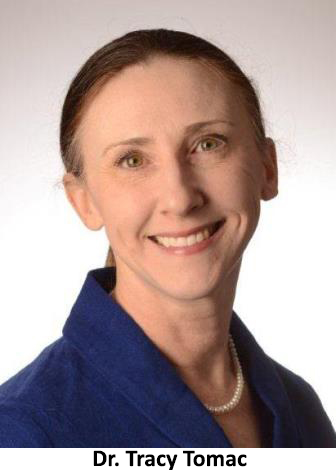
The doctor opens the first envelope and the note says: “Always gets agitated in the early afternoon.” The next envelope: “Cries out in the night.” A few short words about each patient, and that’s it.
Without anyone ever saying a word to her, the doctor understood the expectation: Fix this with a pill.
And Dr. Tracy Tomac said to herself: “This is not going to work.”
What she intuitively knew then, and what she now knows with considerable experience, is that you rarely “fix” an elderly person with dementia with a pill. Medication obviously has a place, but it’s not the be-all and end-all. And as she would soon see firsthand, it can often hurt more than it helps. Just as giving antibiotics at the first sign of a cold could be overreacting, so could giving antipsychotics or antidepressants at the first sign of agitation.
“But back then,” Dr. Tomac says, “this was just how medicine was practiced on nursing home patients.”
Early on, she decided it was not how she was going to practice. When she started rounding at a nursing home for elderly nuns, she started to understand her options. This was a close, supportive community able to give her lots of information about each patient. She was learning that truly knowing patients and their history could be a more powerful tool than the prescription pad.
Dr. Tomac soon moved to Winona, Minn., and her new job allowed for even more rounding at nursing homes — something she loved. Also, she was fascinated by the culture of caregiving in small-town Minnesota. Everyone knew everyone. Nurses and other caregivers were taking care of their friends and neighbors, and the background they had about each patient gave the doctor rich diagnostic information. Caregivers were like extended family, and Dr. Tomac was beginning to see how crucial “knowing the patient” as an individual is to practicing psychiatry the way she wanted to do it. She saw how important relationships were to the patients. Connecting on a personal level had a healing power all its own.
Dr. Tomac was captivated by the remarkable life stories of these determined, courageous people who had struggled through the Great Depression and World War II, and she saw how relevant these stories were as dementia progressed and communication skills declined. Dementia patients often were more connected to the past than the present, and behavioral episodes often were directly related to a person’s history. For example, patients who walked incessantly around the nursing home may have had careers requiring constant on-the-job walking.
The patients’ many engaging stories of hardship and triumph reminded Dr. Tomac of her Great-Grandmother Flo who had come to America from Wales in 1920 — with nothing — and carved out a vibrant, productive life. When Grandma Flo was in her 80s, Tracy was just a kid and would travel from Texas to visit her in Pasadena, Calif., during the summer. Grandma Flo was the “original little old lady from Pasadena,” always on the go. “She was a role model for active aging,” Dr. Tomac says.
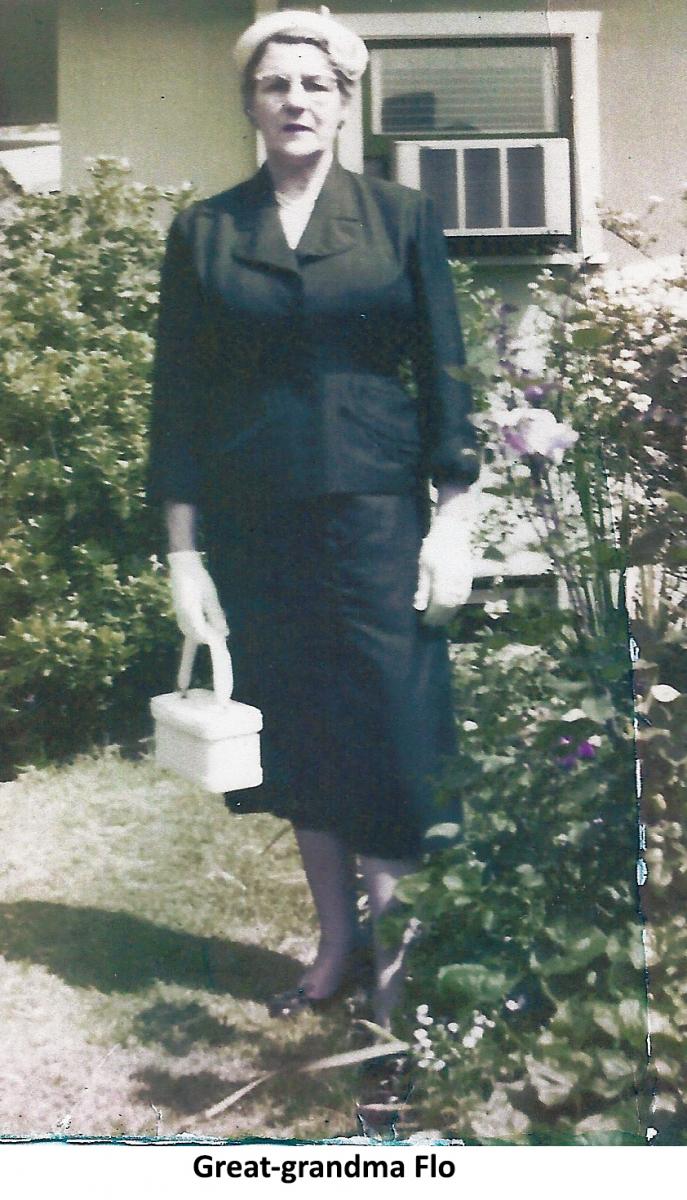 Grandma Flo never regarded herself as old and was a serial volunteer at local nursing homes. As an octogenarian, she would say without a trace of irony, “Hey, Tracy, let’s go visit the old people.” Even then, Tracy loved going to the nursing homes. As the cute little kid, she was the center of attention.
Grandma Flo never regarded herself as old and was a serial volunteer at local nursing homes. As an octogenarian, she would say without a trace of irony, “Hey, Tracy, let’s go visit the old people.” Even then, Tracy loved going to the nursing homes. As the cute little kid, she was the center of attention.
And now, in rural Minnesota, Tracy Tomac, the psychiatrist, was still the center of attention in the nursing home — now because she had the prescription pad. The nurses called all the time asking the doctor to give patients something to help them sleep, something to calm them down, something to stop their outbursts. “Give them something” was a constant refrain.
What Dr. Tomac started to do was give them close attention. Like the time an elderly woman with dementia was screaming in the night, every night, that there were “baby heads” flying around in her room. Give her something, please, the nurse asked.
Dr. Tomac went into the room, sat on the bed and tried talking to the woman. And something caught her eye. She left the patient, went to the nurse, and offered this prescription: “Change the bedspread.”
While in the room, she noticed that the bedspread had a vivid design of “peach cabbage roses.” The head-like design could easily transform into “baby heads” to a person with dementia, with limited sensory input. “With dementia, the mind does the best it can with the sensory input it has,” she explains. “The mind takes whatever input it gets and tries to fill in the blanks.”
Removing the bedspread worked. Sure, a sedating drug may have worked too — but most likely with unnecessary side effects.
And there were more situations like this— enough to make Dr. Tomac think medication should not always be the first tactic. She was convinced, but the nurses weren’t. She knew she needed to some way persuade them, since they were the “boots on the ground” who she depended on for crucial diagnostic information.
So Dr. Tomac tried the educational approach. She would hold seminars at care centers over lunch and talk to staff about how to analyze the cause of behavioral outbursts and manage difficult behaviors without drugs. But this was slow going. Really slow.
“Once I was in a place for about two years, people would start to trust me,” she recalls. “Then I would begin to notice that the approaches I was advocating started to be fed back to me. Nurses would start telling me about a patient’s issues, then would say: “But I don’t think medication is necessarily called for in this situation.”
Dr. Tomac was now working at St. Luke’s Hospital in Duluth and rounding at nursing homes in the area. In 2008, while visiting what is now Ecumen Scenic Shores in Two Harbors, Minn., she met an Ecumen nurse manager named Eva Lanigan. They were “kindred spirits.” Eva had attended a workshop about the dangerous side effects of antipsychotic drugs on elderly people. When she looked around the care center, she saw too many patients in a drug-induced fog and wanted to do something about it.
Dr. Tomac was just the doctor to see about that. Together, they started going through residents’ charts, one by one. What drugs were they on? Were all the drugs necessary, given the diagnosis? What could they do to slowly wean the patients off the drugs?
This was the beginning of the Ecumen Awakenings program — two women determined to give elderly dementia patients a better quality of life. They went to work creating a collaborative program with the patients, the doctors, the care team and the family to replace sedation with an integrated, holistic program of care. They just did it—patiently and systematically with a clear vision of the outcome they wanted—but with no blueprint from official sources and with no certainty that it would work.
As their collaboration progressed, Eva began to formalize the program. The entire staff of Ecumen Scenic Shores — including housekeepers, cooks and dining room servers — received training in methods to calm residents when they became agitated, using non-pharmaceutical techniques like redirection, exercise, activities, music, massage and aromatherapy. The staff was taught how to listen to residents and enter their reality, responding to them without insisting on facts that those with dementia can’t grasp or won’t recall.
They started in the early spring of 2009 and by early fall that year, ALL inappropriate antipsychotics were discontinued and antidepressants were reduced by 30 percent. Ecumen Scenic Shores was no longer a quiet place. It had literally come alive. Residents who had been immobile began participating in balloon volleyball. People who had not spoken in years were becoming more verbal. Residents were smiling and participating in sing-alongs.
The dramatic results prompted Ecumen to start exploring ways to make Ecumen Awakenings more widely available. Laurel Baxter, RN, an Ecumen quality improvement nurse now retired, was appointed to formalize the program so that it could be replicated in all 15 of Ecumen’s nursing homes. The State of Minnesota awarded Ecumen a performance incentive grant — essentially venture dollars to support innovation in long-term care— which financed the implementation. Carefully monitored results showed dramatic reductions in the use of antipsychotic medications and dramatic increases in alertness, mobility, and laughter, more restful sleep, fewer falls, enhanced verbal ability, singing, ability to exercise, and reductions or eliminations of erratic mood swings, hallucinations and outbursts.
On March 17, 2014, Ecumen received national recognition for Awakenings, winning the LeadingAge Excellence in Dementia Care Award.
Coming out of this Awakenings collaboration, Dr. Tomac is now a medical consultant to Ecumen, helping nurses and other caregivers stay abreast of the latest developments in care and helping Awakenings continue to grow and evolve as it is expanded to assisted living communities. The consultancy is a way for Dr. Tomac to stay in touch with her geriatric interests, now that she has made a career change and moved to Regions Hospital in Saint Paul, Minn.
She currently works as an inpatient hospital psychiatrist treating adults. She finds surprising similarities in treating hospitalized patients and nursing home patients, particularly in an institutionalized setting with patients who have perhaps experienced many losses — particularly loss of control over their environments. All age groups are struggling to make sense of their worlds, she says, and their perceptions may be altered by mental illness or dementia.
She finds that the elderly are in a way easier to diagnose since they have a long history. If you can understand that biography, treatment options are much clearer. Younger patients' lives are more of a "work in progress,” she says, “and we have the opportunity to try to help the patient change the trajectory.”
"An elderly person with dementia or a psychiatrically ill inpatient is just trying to make sense of the world and get their needs met, just like all of us." says Dr. Tomac.
Regardless of age, Dr. Tomac’s approach is this: Accept people where they are. Talk with them, not to them. Try to put yourself in their place. Figure out what’s causing their fear and anxiety. Look at the entire environment, not just at the person. And look for the unmet needs. Yes, sometimes a drug is the answer. In cases of severe mental illness, prescription drugs can give people their lives back. But dementia is something else entirely . Rather than see the behavior of dementia as purposeless and disease-driven activity to be managed with drugs and restraints, we can see it as an attempt to cope with real problems that often can be dealt with by changing the patient’s environment.
Looking way back to those early days in New Ulm, Dr. Tomac says she knows everyone was just trying to do the best they could with the tools and knowledge they had at the time. Like everything else, the practice of medicine and the culture of care evolve. Ecumen’s nurses now frequently recite the mantra: “When we know better, we do better.” They now know a much better way of care than using chemical or physical restraints.
Likewise, new doctors coming to rural Minnesota now will be practicing on a whole different landscape.
Last year, the American Psychiatric Association issued an advisory saying anti-psychotic medications should not be the first treatments doctors think of when dealing with dementia in elderly persons, and this year the American Geriatrics Society issued a similar one. Plus, the Centers for Medicare & Medicaid Services now have a national campaign focused on reducing the use of antipsychotics in nursing homes.
Doctors, nurses and patients all have experienced awakenings.
—
Read The New York Times 2011 story on the beginnings of Awakenings at this link.

